A Message From 100 STEM Social Innovators
Introduction
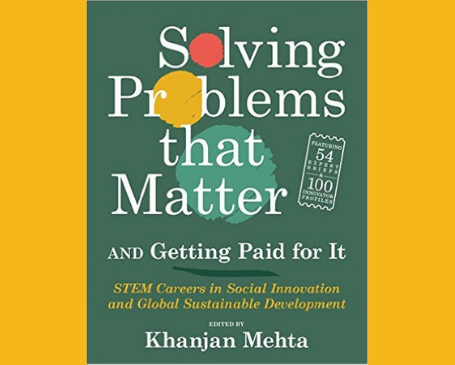
Khanjan Mehta asked each of the innovators profiled in his book, Solving Problems That Matter (And Getting Paid For It):
“What advice do you have for professors and universities as they educate the next generation of social innovators?”
Their candid responses, based on decades of living on the bleeding edge of social innovation, should come as no surprise. This excerpt synthesizes the recurrent themes and presents them in the innovators’ original words.
Reprinted with permission.
Get Students Outside the “Main Track”
“Faculty really must encourage students to take courses and get involved in activities outside their main ‘track.’ It may slightly slow the progress to a degree, but that extra time is negligible in terms of the career opportunities and ideas it can develop. Now that I am at NSF we find that many faculty discourage their students from doing international work because the faculty do not want to lose some of their students’ productivity. Faculty really have to try to take a longer-term view—an international experience or an internship could open up a whole new world to a student and can even provide new opportunities for faculty themselves. Also, I encourage faculty to reach out to former students with nonacademic careers and get them to advise current students.” – Lara Campbell, Program Director for the NSF Convergence Accelerator Program in the Office of Integrative Activities at the U.S. National Science Foundation (NSF).
“Let’s redesign aspects of our work from the students’ perspective. Traditions and growth have disconnected colleges, departments, units, and campus communities. Let’s create opportunities that crosscut these man-made barriers. Let’s make the maze these students are so good at getting through a little stickier so that they are required to get out of a predetermined path, have unexpected experiences, and reflect. Let’s help them connect the dots between their in-class and out-of-class activities. Let’s create professional development opportunities to help professors support social innovators in their teaching and research.” – Meg Small, Director of Social Innovation, Bennett Pierce Prevention Research Center at Penn State University
Champion Rigorous, Ethical, Evidence-Based Approaches
“I think we need to do a better job of analyzing the lessons learned of social innovation efforts in the past and linking those results to new initiatives. There is not enough quantification of results and certainly not enough cross-talk between academia and the policy makers on this side. We should create more decision spaces where needs, expectations, progress, and results are worked on jointly.” – Frances A. Colón, science and environmental policy expert, community organizer
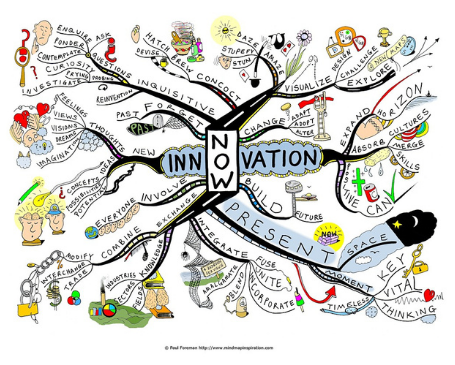
“Working for an incubator, one of the most consistent issues we see with early-stage entrepreneurs is that they really do not understand the problems well because they are not spending enough time in the field talking with customers. Teaching students to use human-centered design principles is a good starting point, but getting them to apply them to real-world problems and understand how vital customer insights are is the critical next step that many educational programs seem to miss. Guiding students through multiple cycles of insight gathering and product development and finally launching the product will illustrate the importance of taking this process seriously. That is an area where educators have the ability to make a big difference.” – Paul Belknap, Founding Team at Monarch
Teach Students How To Fail (And Bounce Back from Failure)

“I do not think I would be where I am today if my professors had not given me the freedom to fail and [to] learn from risk taking. Teach your students how to think, but let them fail, and fail fast. Looking back, I realize that my failures have taught me way more than my successes, and I owe it to my professors for trusting in my abilities to learn from these failures.” – Shruthi Baskaran, Project Leader at The Boston Consulting Group (BCG)
“Help your students learn to stretch themselves and to bounce back from failure. Many students have never truly failed by the time they get to college. Innovation is all about change and growth into brand new areas so you are creating the path. The only way to do this is to push beyond what has already been done. There will be losses along the way, and it is critical that new innovators do not fear the potential of loss so much that they will not take the risk. And, when they fail, it is equally critical that they are able to get up, dust themselves off, learn from the experience, and try something new.” – Andreina Parisi-Amon, Director of Partnerships at Mass STEM Hub
Toughen Up Students for a Competitive World
“Provide interdisciplinary education! Find creative ways to support student projects that cannot be supported through traditional grant/research support pipelines. Require all students in a social entrepreneurship program to enter a business plan competition—even if they do not win—so they learn in a competitive environment what goes into developing and pitching an idea. Allow them to fail and encourage them to fail so they grow a thicker skin. They should not believe they are perfect when they enter the workforce. Many new entrants to the workforce are not as hardworking as they used to be (and sometimes more entitled). You shape them during school; help to create people that are creative yet realistic, hardworking yet balanced, thoughtful yet detail oriented, great team members yet proactive!
"I am not saying we should be unnecessarily hard on students, but academia is not only building their knowledge in a particular area; it is preparing them for a workforce where they will need many of these practical skills. Knowledge is not enough. They will need a thick skin if they are going to be working in innovation.” – Jenn Gustetic, Organizational Leadership and Transformation; Technology, Innovation & Entrepreneurship; Future of Work
Prepare Students to be Systems Thinkers (And Actors)
“[Universities] should help students understand systems and complexity science, and how to work under circumstances of constant and vigorous change. Technical skills are important, but more and more we need young people to be able to work effectively in a complex, interconnected, and emergent world.” – Srik Gopal, Managing Partner at Humanity United
“Academic institutions should do more to present big, intangible problems to young students to encourage them to think critically and creatively about challenges that cannot be solved by simply reading a textbook or attending a lecture. Facilitating broader thinking across cultures and academic disciplines is essential in developing world-class STEM students who are prepared to enter a professional environment where there are no easy answers.
"More opportunities should also be made available for students to meet other young STEM people around the world and collaborate on real challenges facing humanity. This interaction provides context and importance, which is essential for taking technical development and education seriously. Without a young STEM major seeing who or where their work could ultimately impact, they are unable to think beyond what is required on their next thermodynamics assignment or chemistry lab.” –Steve DeSandis, Fellow at Global CoCreation Lab
Keep It Real—Very Real
“Make sure that people are being grounded in reality. When I was in college, I was very idealistic in terms of how I wanted things to be and was a little naïve as to whether certain things were achievable or how to achieve certain things. I would have benefited from people who could have helped me understand, without diminishing my enthusiasm, but have helped me understand what is actually practical and what are the practical methods to try to achieve a goal, as opposed to pursuing impractical methods and spinning your wheels.” – Jay Goyal, CEO and Co-Founder of Actively Learn

“Encourage students to engage in global health work, but also help them understand that one idea, hatched in a lab somewhere, is extremely unlikely to change the world. There are lots of work, creativity, people, and, yes, money, needed beyond that initial idea, or that initial bit of lab work, before a product can be introduced, and even more so, before something can be scaled to actually have wide impact.” – Bernhard Weigl, Director, Diagnostics at Global Health Labs
Be Willing to Question the Dominant Paradigm
“I have a soft spot for the stories of inspirational innovators from the past, of examples of people achieving greatness. I love reading about people like Louis Pasteur, John Snow, Ignaz Semmelweis, and Ada Lovelace, and how they were able to make original insights that went against conventional wisdom, because they had data that said something surprising. Most advances in knowledge do not come from a carefully planned experiment that turns out ‘correctly’; they come from an unexpected finding. The willingness to question the dominant paradigm is key.” – Rick Johnston, Principal Owner at Peak Drilling and Completion Consultants
“When senior faculty ask you to follow old trends of getting citations, push back and ask why—this will lead to an interesting conversation.” – Nigam Shah, Associate Professor of Medicine (Biomedical Informatics) and of Biomedical Data Science
Educate Students about Nontraditional Career Pathways
“Offer as many opportunities as possible for students to get involved in social innovation. Professors can also introduce careers during their lectures that use the concepts they are teaching to engage in social value creation.
"Both professors and universities can work to bring social innovators to their universities to offer lectures where students can learn about their efforts.” – Tim Carter, Professor Emeritus at St. John's University
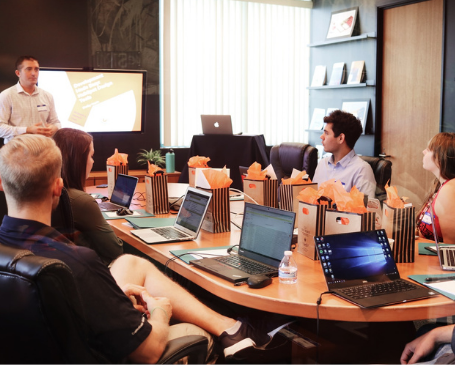
“Provide opportunities for students to interact with social innovators. There are lots of great groups out there that support social innovation who would be happy to provide the background and get students excited about social innovation.” – Rebekah Neal, M.D.
Actively Help Students Find Their Niche
“Professors should be able to identify students with unique skills and talents. Examination is not the true test of knowledge. Many students who fail in class may not necessarily fail in the field. I learned more out of class than I ever learned in class. My entire undergraduate days were simply a waste for me—I just needed the degree. This is same for many students.” – Roland Fomundam, Co-Founder at GreenHouse Marketplace Cameroon
“Be careful not to sugar coat or hype the social impact arena—it is a difficult, uncertain, and competitive field. I would not encourage students to become social innovators because it sounds cool or feels good or is a dynamic and innovative new industry. Rather, I would encourage them to:
- Find what they truly enjoy doing for themselves,
- Cultivate a curious, inquisitive, and questioning mind,
- Care deeply for people and the planet, and
- Go out and see for themselves what is wrong with the world, expecting that they will find a way to use what they love doing to make it right.”
– Tyler Valiquette, Research and Lecturer
Solve Problems That Matter
“Universities should offer programs focused on interdisciplinary, cooperative team experiences in which students define problems that matter and develop real solutions. This can occur through courses, cocurricular, and extracurricular activities. While students spend most of their time in classes and studying during college, it is the unconventional classroom and out-of-classroom experiences that are often critical to prepare young people to enter their careers ready to develop effective solutions to tough global challenges.” – Brian Bell, Associate Director - Technology at AT&T
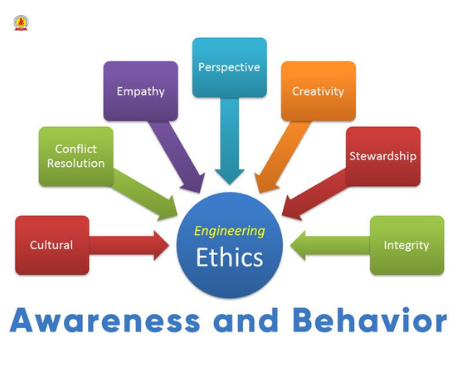
“Today’s engineer must blaze a new trail in engineering ethics that prioritizes the needs of the most vulnerable members of our society and our ecosystem.
"Engineering education should never put the abstractions of calculus and physics ahead of the reality of the world around us, desperately in need of creative and compassionate thinkers, prepared to hear and amplify the hopes and aspirations of our brothers and sisters overcoming oppression.” – Frank Bergh, Senior Engineer at NRECA International
Associated Content

The Creativity & Innovation Bookshelf

Innovation Bootcamp: Tools You Can Take Straight to the Classroom
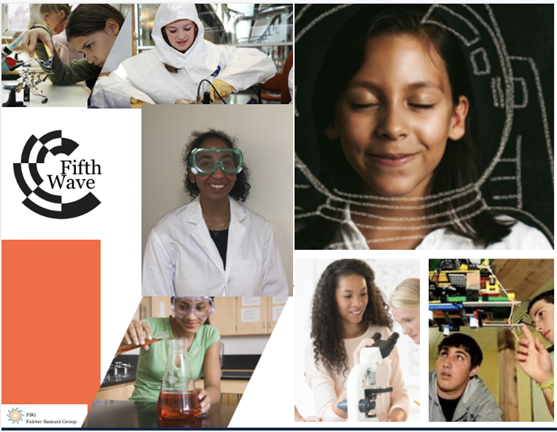
Fifth Wave (TM) STEM Prep Institute
Bibliography
- Mehta, Kanjan. Solving Problems that Matter (and Getting Paid for It): STEM Careers in Social Innovation and Global Sustainable Development. CreateSpace, October 2015.
- Hand Drawn Mind Map Examples for Inspiration and Motivation, Paul Foreman.
Meet the Author

Khanjan Mehta, Vice Provost for Creative Inquiry, Lehigh University
Search All Stories

Discover more ideas, opportunities, and actionable take-aways!